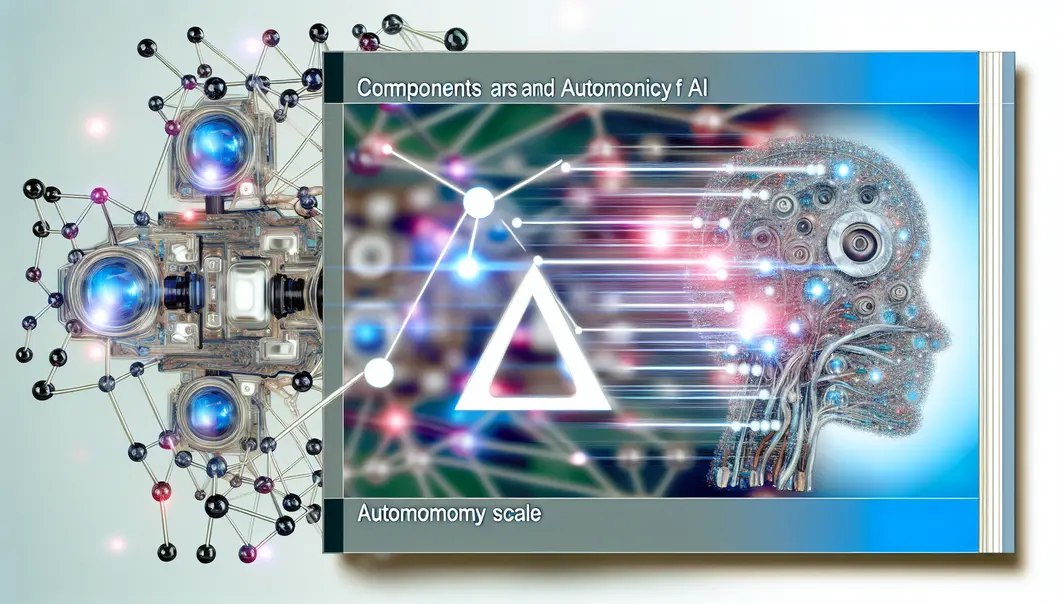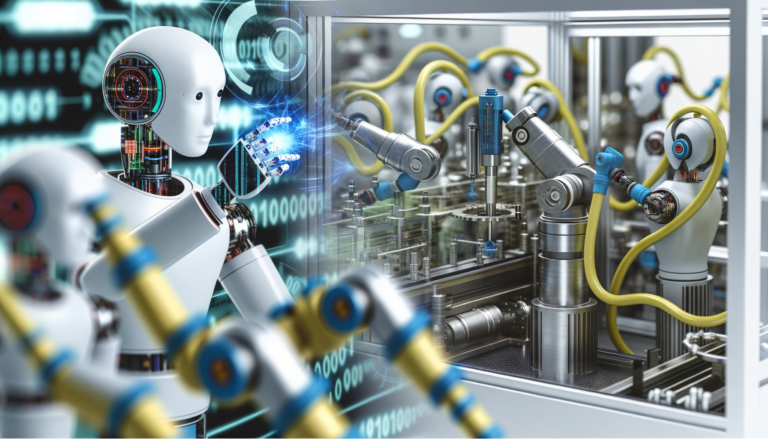AI agents are revolutionizing the way startups operate, offering unprecedented capabilities in workflow automation and enhanced productivity. As digital transformation becomes key to achieving scalable solutions, understanding the types, functions, and components of AI agents is crucial for startup founders aiming for innovation and efficiency. This article explores the impactful role of AI agents, highlighting the different types, their functions, and the autonomy levels that define their effectiveness.
Understanding the Types and Functions of AI Agents in Workflow Automation

Artificial Intelligence (AI) agents have revolutionized the realm of workflow automation by mitigating repetitive tasks and enabling more strategic use of human resources. These agents function autonomously, integrating with existing systems to streamline processes across various industries. Whether it’s marketing, sales, or finance, AI agents enhance productivity by automating and executing complex tasks without the need for continuous human intervention.
What makes AI agents so effective in workflow automation is their structure. First, they consist of a ‘brain,’ usually a large language model, capable of processing natural language and understanding instructions. Second, they function with memory components and tools that allow them to execute subtasks and learn iteratively. This process ensures they can improve over time, becoming more efficient in their assigned roles.
One can categorize AI agents based on their independence as outlined in Bessemer’s Autonomy Scale, which helps industries determine how best to employ these tools. From fully manual systems that require human oversight to autonomous systems capable of sophisticated decision-making, AI agents are effectively tailored to meet diverse business needs.
Workflow automation harnesses AI agents to transform mundane operations into efficient systems. Imagine marketing departments using AI to automatically schedule and post content, or sales teams deploying AI for lead management and contract approvals. These agents work by identifying triggers (events that initiate an action) and corresponding actions (the tasks performed as a result). For example, submitting a form could automatically generate an email sequence, reducing the manual workload significantly.
Integrating AI into workflows also covers human resources, where onboarding and performance evaluations can be streamlined. In finance, expense management becomes more robust with AI handling invoice processing through intelligent document recognition, ensuring accuracy and consistency in approvals and submissions. The real-world applications of this technology are vast, and its impact is already evident in sectors like customer service, where AI-driven ticketing systems optimize response times and customer satisfaction.
The benefits of deploying AI-driven workflow systems are multi-fold. They offer increased efficiency as they automate laborious tasks, allowing employees to focus on strategic objectives. They reduce manual errors, leading to improved accuracy in operations. Consequently, businesses witness significant cost savings and enhanced customer experiences due to faster response times. Furthermore, the scalability of AI systems means that increased workloads can be handled without proportional increases in resource allocation.
To develop these systems, businesses must first identify tasks suitable for automation, focusing on areas prone to error or tedium. Mapping these workflows visually can assist in understanding the steps and points of integration required. Then, designing and implementing the automated workflow involves defining triggers, actions, and conditions, often using sophisticated platforms capable of embedding AI features directly into existing infrastructures. These platforms ensure that AI-driven actions complement human judgment, increasing the efficacy of the overall workflow.
Deploying AI agents in workflow automation is not merely a technological upgrade but a strategic transformation. As industries continue to harness these tools, AI agents will undoubtedly shape the future of operational efficiency and business innovation. For a further exploration into the impact of AI technologies, you might find the insights discussed in DeepSeek AI Impact valuable, as they delve into AI’s broader implications across sectors.
Components and Autonomy of AI Agents

AI agents are reshaping industries with their ability to perform tasks autonomously. Central to their operation are components that define their functionality and autonomy, notably the large language model (LLM). These models are integral to the ‘brain’ of AI agents, enabling them to process complex data, make decisions, and execute tasks efficiently.
The concept of a Large Language Model (LLM) is pivotal. LLMs, like ChatGPT or Claude, are trained on extensive datasets encompassing diverse text and code. This preparation allows the AI to recognize and understand linguistic patterns, facilitating tasks like text generation, language translation, and more. The deep learning techniques underpinning these models rely on artificial neural networks, which imbue the AI with the capacity to learn and adapt continually.
At the heart of LLM architecture lies the transformer model, characterized by multi-layer perceptrons (MLPs) and attention layers. MLPs manage information processing at each token position, while attention layers orchestrate the exchange of information across these positions. This structure equips AI agents with the ability to focus selectively on different parts of the input data, enhancing their interpretative and operational accuracy.
LLMs also highlight the potential for multilingual capabilities, suggesting an emergent ‘language of thought’ that transcends traditional linguistic boundaries. This means that concepts learned in one language can be transferred to another, allowing for nuanced understanding and interaction. However, English remains a dominant output language for many models, with outputs in other languages often being influenced by particular language features.
A significant challenge for AI involves the interpretability of these models. The neural architecture of LLMs is complex, and unraveling their inner workings requires sophisticated techniques like circuit tracing. This method helps researchers decode the pathways models use to produce outcomes, leading to more transparent and reliable AI systems.
AI agents exhibit varying degrees of autonomy, guided by frameworks like Bessemer’s Autonomy Scale. This scale categorizes the levels of independence AI agents can achieve, from simple task execution to more advanced levels involving planning and execution of subtasks. An agent’s ability to plan and reason, such as thinking ahead to produce poetic rhymes or synthesizing independent facts to address intricate questions, is a testament to its advanced capabilities.
Yet, the evolution of AI agents is not without its hurdles. Issues related to output bias, misinformation, and incorrect interpretations signify the ongoing challenges within the field. Addressing these concerns is critical, as the applications of AI continue to widen, encompassing areas like content creation, education, and beyond. Ethical considerations also take precedence, prompting a careful evaluation of AI’s role and limits in society.
In conclusion, AI agents, with their robust components and evolving autonomy, promise to transform industries by enhancing productivity and automation. As they grow more sophisticated, their development will likely pivot towards improving understanding and minimizing biases, ensuring they act as reliable collaborators in an increasingly digital world.
Final thoughts
AI agents are reshaping startup ecosystems by offering advanced solutions for automation and collaboration. As these agents evolve, understanding their types and components allows entrepreneurs to strategically integrate them into their operations. By doing so, startups can achieve enhanced efficiency and competitive advantages, paving the way for successful scaling and innovation.
Ready to elevate your business with cutting-edge automation? Contact Minh Duc TV today and let our expert team guide you to streamlined success with n8n and AI-driven solutions!
Learn more: https://ducnguyen.cc/contact/
About us
Minh Duc TV is a forward-thinking consulting firm specializing in n8n workflow automation and AI-driven solutions. Our team of experts is dedicated to empowering businesses by streamlining processes, reducing operational inefficiencies, and accelerating digital transformation. By leveraging the flexibility of the open-source n8n platform alongside advanced AI technologies, we deliver tailored strategies that drive innovation and unlock new growth opportunities. Whether you’re looking to automate routine tasks or integrate complex systems, Minh Duc TV provides the expert guidance you need to stay ahead in today’s rapidly evolving digital landscape.



